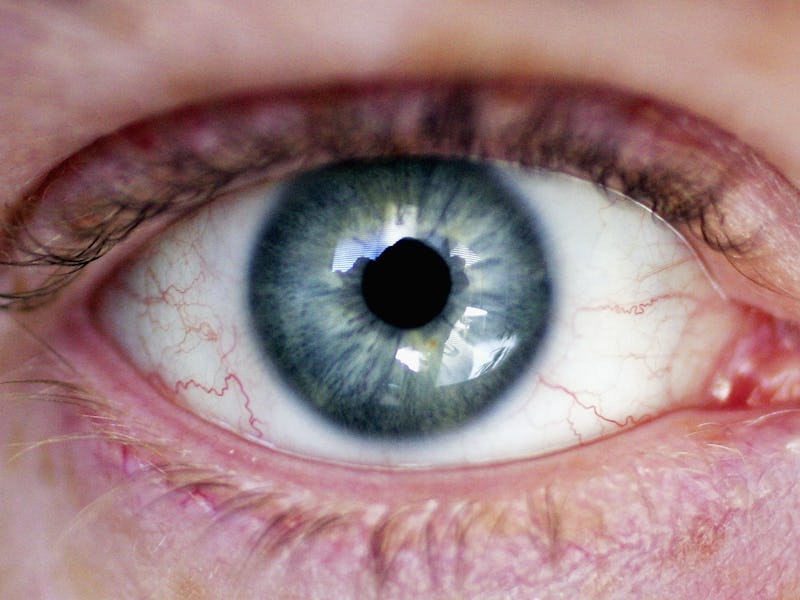Sony And Samsung Want to Turn Your Eyes Into Computers
Your body's natural camera may eventually stream video.

Sony, Samsung, and Alphabet want to get right in your eyeballs. The tech firms have made public movements that appear to see contact lenses as one of the future interaction mediums. For taking pictures, video streaming, and measuring health signs, there may be solid reasoning behind sticking a computer in your eye.
Sony was awarded a patent by the USPTO back in April for their contact lens design. Housed on top of the user’s eye will be a processor, antenna, RAM storage, and read-only memory. An image processor will detect when the wearers blinked, how long the user blinked for, and whether the blink was intentional to trigger the on-board computer to record a picture. Yes, all this is done with circuits sitting on a person’s eye.
The weirdest part is that Sony isn’t actually the first company to patent something like this. Back in April, Samsung was also awarded a patent for a similar idea. Both lens ideas connect to a nearby smartphone for transmitting the images, so having a full-featured camera on everyone’s eyeballs is still something that’s years away (assuming that is a thing that people want).
Sony's contact lens patent
It’s not all about putting cameras in the eyes, though. Verily, an Alphabet company (the guys that own Google) is currently developing a smart contact lens that can detect the glucose levels in the wearer’s tears. This would be a breakthrough for those suffering from diabetes, as it would alert the wearer as soon as they needed to take action.
Alphabet has been burned by wearable tech before, though. The Google Glass headset, released in prototype form in 2013, gave rise to the Silicon Valley pejorative “glasshole,” as they visibly sat on the wearer’s head and were hard to look past. Google remained quiet on the project, although publicly maintained their commitment to future development. In January 2016, however, the Google Glass social media pages went offline.
In the limited uses proposed, contact lens tech may be unobtrusive enough to work. Thankfully, the phrase “contactlenshole” also doesn’t really roll off the tongue. In these situations, it will depend on how disruptive the lenses are to a person’s life. If they’re as obvious as Google Glass made itself, it may be hard to find wider acceptance beyond the core few early adopters.